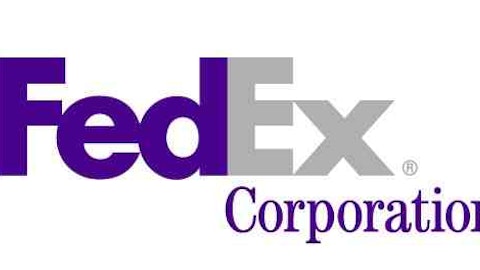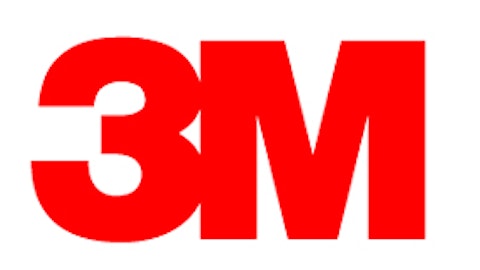
A large influx of short-sellers shouldn’t be a condemning factor to any company, but it could be a red flag from traders that something may not be as cut-and-dried as it appears. Let’s look at three companies that have seen a rapid increase in the amount of shares sold short and see whether traders are blowing smoke, or if their worry has some merit.
| Company | Short Increase Jan. 31 to Feb. 15 | Short Shares as a % of Float |
|---|---|---|
| The McGraw-Hill Companies, Inc. (NYSE:MHP) | 145.5% | 2.2% |
| AVG Technologies NV (NYSE:AVG) | 278.5% | 18.6% |
| United Parcel Service , Inc. (NYSE:UPS) | 66.9% | 1.7% |
Source: The Wall Street Journal.
Letting your emotions get the better of you
February was a month to forget for McGraw-Hill investors as the U.S. Department of Justice filed a lawsuit against its subsidiary, Standard & Poor’s, alleging it knowingly inflated its ratings on mortgage bonds as credit quality was visibly deteriorating. Word that the DOJ was seeking $5 billion in damages quickly lopped off $5 billion in market value from McGraw-Hill and sent its peer Moody’s Corporation (NYSE:MCO) screaming lower as well. But is this an overreaction? I’d like to think so.
To begin with, many DOJ lawsuits end in out-of-court settlements for far less than the original amount the DOJ was seeking. Unless this case goes to trial and a judge levies the full balance against The McGraw-Hill Companies, Inc. (NYSE:MHP), then investors have allowed their emotions to get the better of them in this case.
Another factor worth considering is the health of McGraw-Hill’s underlying business. The company reported another year of solid growth with 13% revenue growth and 32% diluted EPS improvement year over year. Looking ahead, The McGraw-Hill Companies, Inc. (NYSE:MHP) anticipates 15% EPS growth in 2013 as the company focuses on tightening its costs, making earnings-accretive investments, and delivering more value to shareholders through dividends and share repurchases. I’m inclined to believe that short-sellers are playing with fire here.
Don’t stand in the way of cybersecurity
Attempting to stand in the way of companies that are developing the latest consumer and enterprise-based security software is like trying to stop a speeding locomotive with bales of hay. President Obama has made it very clear that he intends to step up cybersecurity requirements in the U.S. after multiple government agencies were hacked, which is putting security companies across the board in the spotlight — including AVG Technologies.
AVG’s most recent quarterly report, released two weeks ago, showed strong year-over-year growth with revenue rising 28% to $95.2 million and adjusted EPS improving to $0.32 from $0.21 in the year-ago period. Its growth stems from multiple avenues including its cost-reduction measures, the introduction of its latest line of “freemium” software in September, and the partnerships it’s establishing with both Google Inc (NASDAQ:GOOG) and Yahoo! Inc. (NASDAQ:YHOO).
What makes AVG unique, and gives it both an edge and a drawback at the same time, is its reliance on allowing users to try out its software for free. One of AVG’s biggest PC protection competitors, Norton Antivirus, which is owned by Symantec Corporation (NASDAQ:SYMC), relies on OEM partnerships which preinstall the software on PCs for consumers to download and use. AVG doesn’t have these OEM partnerships in place, which can be seen as a drawback, but in previous years had given Symantec an edge. However, the use of online advertising in order to garner trial users can actually be a cheaper method of customer acquisition. This is why AVG’s costs are falling as word of mouth and advertising are driving trial and subscription revenue growth for both consumers and enterprises. Would I bet against AVG? No way!
What can brown do for you?
The shipping and logistics sector has been incredibly hit-or-miss for the past year as Europe’s austerity woes, China’s slowing growth, and the threat of budget cuts and higher taxes in the U.S. have many rethinking whether they can trade down from premium overnight shipping to less costly and lower-margin ground or two-to-three-day shipping services. FedEx Corporation (NYSE:FDX) confirmed these struggles in its second-quarter results in December, when it reported a worrisome 5% decline in domestic express service and a 2% retracement in international express orders.
United Parcel Service , Inc. (NYSE:UPS), or UPS, appears to share the same sentiment as FedEx that the global environment is tough, but it delivered markedly better results than FedEx when it reported its fourth-quarter results in late January. Consolidated global package volume per day actually grew 2.7% for the quarter and that was including the negative effects of Hurricane Sandy in the U.S. All told, UPS reconfirmed its commitment to shareholders by boosting its share repurchase guidance from $1.5 billion to $4 billion and forecast EPS growth of 6% to 12% despite negative ongoing currency translations and higher pension expenses.
The way I look at United Parcel Service , Inc. (NYSE:UPS) is that if it can perform this well in a stagnant growth environment, just imagine how inexpensive it’ll appear when package growth returns to around 5% in a modest global growth scenario.
Foolish roundup
This week I’ve come to the conclusion that short-sellers are barking up the wrong tree. Emotional trading and long-term trends appear to be working against them in all three instances.
What’s your take on these three stocks? Do the short-sellers have these stocks pegged, or are they blowing smoke? Share your thoughts in the comments section below.
The article Shorts Are Piling Into These Stocks. Should You Be Worried? originally appeared on Fool.com and is written by Sean Williams.
Fool contributor Sean Williams has no material interest in any companies mentioned in this article. You can follow him on CAPS under the screen name TMFUltraLong, track every pick he makes under the screen name TrackUltraLong, and check him out on Twitter, where he goes by the handle @TMFUltraLong.The Motley Fool owns shares of Google. Motley Fool newsletter services have recommended buying shares of Moody’s, Google, FedEx, and United Parcel Service.
Copyright © 1995 – 2013 The Motley Fool, LLC. All rights reserved. The Motley Fool has a disclosure policy.





